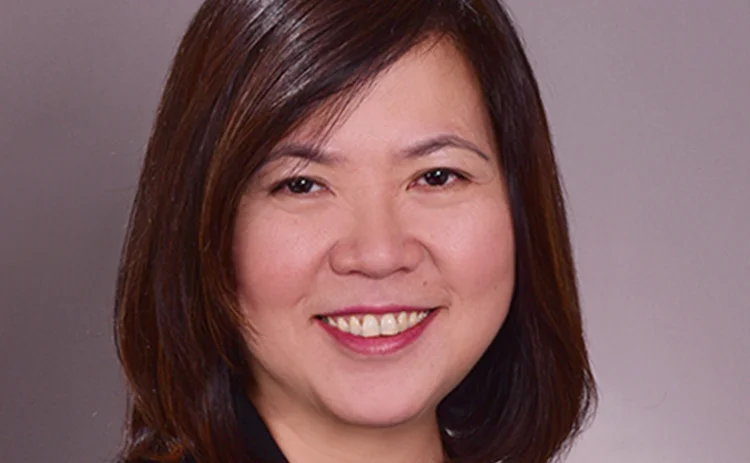
Hong Kong house of the year: UBS
Structured Products Asia Awards 2017: Dominance in Hong Kong’s tough warrants market combined with strong wealth management business has pushed UBS to the fore

The strength of UBS’s structured products business in Hong Kong is, to a large degree, a function of its deep footprint across a variety of markets in the region. It not only has a very large wealth management business, but also a powerful presence in local equity markets.
Indeed, the consistency and size of its warrants business in the region over the past decade have been particularly eye-catching. UBS started the business in 2005, and it is now “a very healthy, successful business”, says Johnny Yu, head of public distribution, Asia, at UBS. Yu is the father of the warrants business at UBS, having been there from the beginning.
The strength of the warrants business arrested the attention of the judges in this category. One said that UBS was the clear winner, “given the consistency, size and offering of their Hong Kong warrants compared to competitors”.
In turn, the breadth and depth of its local wealth management division was an indubitable advantage and spur to the creation of the warrants business. As a buyer of volatility through the wealth management arm, it can recycle large amounts of risk through the warrants market, but also offer more competitive pricing than others, even during periods of market volatility, it says.
A year after it inaugurated the warrants market, UBS, in June 2006, was also one of the pioneers of the callable bull and bear contract (CBBC) market. It is now ranked number one for sales of index-linked CBBCs.
The firm has been keen to make its name known in these businesses. It has made significant marketing efforts in Chinese language media while also, for example, launched educational seminars via Bloomberg.
“Brand names in this business are very important. When people think of warrants and CBBCs, they think of UBS,” says Yu.
Hong Kong is also one of the biggest markets in the Asia-Pacific region for structured product flow business. Clients have been more willing to accept innovation than elsewhere, and the regulatory environment remains friendly to the business.
UBS’s principal business is equity-linked products. Volatility has remained very low over the past 12 months, and, in view of that, structured product clients have been prepared to embrace more market risk in exchange for higher returns, says Nicole Tan, head of South-east Asia, Hong Kong and Taiwan structured solutions sales.
In this period, there has been increased interest in bonus-enhanced notes, which offer a juicier coupon or a share of the upside on higher-dividend, higher-vol names. Coupons have sometimes been well into double digits, and occasionally up to 30% or more. The downside is that the put option is struck, and the investor needs to pay for delivery of the share at its initial price, which would be higher than the current price.
Total structured product notional traded in the Hong Kong retail sector was up over 200% year on year, as of June 30. There has been a surge of interest in instruments such as the stepdown autocallable note, whereby the knockout levels step down over the life of the note, but also phoenix (catch-up) structures. The fact that UBS is rated with a strong single A by Fitch Ratings has helped, as the market has shown a tentative renewal of interest in less plain vanilla products.
In January, UBS sold its first pure US-linked actively managed certificate, which offers exposure to the US equity market, but in a format where the underlying basket of names is managed and rebalanced by an external asset manager. It was inaugurated at £10 million ($12.9 million), and has now grown to about £30 million, according to Tan.
Local buyers had shown keen interest in exposure to the US market in this structure, but the creation of the necessary infrastructure to deal with US withholding tax regulations was not easy. The US authorities require the selling bank to report all tax paid on structures that are more than 50% linked to American securities, so getting all the ducks in a row has been a formidable undertaking.
However, the requisite framework was in place by the end of 2016, and the first notes were sold at the beginning of 2017. UBS is now looking to expand this business to cover a greater range of assets beyond the equity space, says Tan.
Only users who have a paid subscription or are part of a corporate subscription are able to print or copy content.
To access these options, along with all other subscription benefits, please contact info@risk.net or view our subscription options here: http://subscriptions.risk.net/subscribe
You are currently unable to print this content. Please contact info@risk.net to find out more.
You are currently unable to copy this content. Please contact info@risk.net to find out more.
Copyright Infopro Digital Limited. All rights reserved.
As outlined in our terms and conditions, https://www.infopro-digital.com/terms-and-conditions/subscriptions/ (point 2.4), printing is limited to a single copy.
If you would like to purchase additional rights please email info@risk.net
Copyright Infopro Digital Limited. All rights reserved.
You may share this content using our article tools. As outlined in our terms and conditions, https://www.infopro-digital.com/terms-and-conditions/subscriptions/ (clause 2.4), an Authorised User may only make one copy of the materials for their own personal use. You must also comply with the restrictions in clause 2.5.
If you would like to purchase additional rights please email info@risk.net
More on Awards
Trading systems: structured products/cross-asset – Murex
Murex won the Trading systems: structured products/cross-asset award at the 2025 Risk Markets Technology Awards for its MX.3 platform, praised for its flexibility and advanced analytics
Best vendor for system support and implementation: Murex
Murex has won the Best vendor for system support and implementation at the Risk Markets Technology Awards, recognised for its innovative MX.3 platform, exceptional client support and seamless implementation services
FRTB-IMA product of the year: Murex
Murex wins FRTB-IMA product of the year for its advanced, scalable MX.3 platform enabling seamless regulatory compliance
Pricing and analytics: equities – Finastra
Finastra’s Sophis platform wins the Risk Markets Technology Award for Pricing and analytics in equities, recognised for its robust capabilities in equities and derivatives trading
Best execution product of the year: Tradefeedr
Tradefeedr won Best execution product of the year for its API platform, which standardises and streamlines FX trading data, enabling better performance analysis and collaboration across financial institutions
Collateral management and optimisation product of the year: LSEG Post Trade
LSEG Post Trade wins Collateral management and optimisation product of the year for interconnected services that help mitigate counterparty risk and optimise capital usage
Clearing house of the year: LCH
Risk Awards 2025: LCH outshines rivals in its commitment to innovation and co-operation with clearing members
Driving innovation in risk management and technology
ActiveViam secured three major wins at the Risk Markets Technology Awards 2025 through its commitment to innovation in risk management and technology







